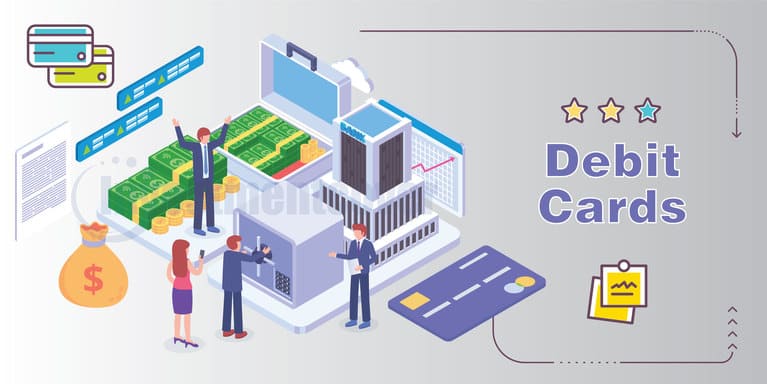




What is a ‘Debit Card’
A debit card is basically a card issued by Banks along with the bank accounts to the account holders. The most basic use of a debit card is to use it to withdraw money from an ATM machine. Debit cards can also used for shopping and travel etc. However, the use is limited to the amount of funds available in your linked back account. With debit cards, one can deposit and withdraw as per your convenience without going through the hassle of going to a branch and standing in long queues. Debit cards can also be utilized for mobile banking and internet banking.
When you open an account with any bank in India, you are issued a Debit Card as part of the welcome kit.
Debit cards v/s ATM cards:
Debit cards v/s credit cards:
Debit cards allow bank customers to spend money by drawing on funds that they deposited with the card provider. Credit cards allow consumers to borrow money from the card issuer up to a certain limit in order to purchase items or withdraw cash.
Debit cards can be used almost anywhere in place of a credit card. The only exceptions might be for rental cars and hotel stays. In those situations, the amount of your final bill is unknown, so billers may require that you use a credit card. At the least, they’ll probably put a large authorization hold on your account, which can tie up funds in your checking account.
Credit Card usage will help you make money. The card holder is using the issuing company’s funds to purchase and gets anywhere between 15 to 45 days of interest free credit. This concept of ‘buy now and pay later’ on the credit card helps one earn interest on the funds that he would have used if the debit card was used for the transaction. Definitionally, a higher usage on the credit card should lead to higher savings.
Debit cards have a lower annual fee in comparison to credit cards.
| Types of Debit Cards in India | |
|---|---|
| Visa / Visa Electron Debit Cards | These debit cards are issued and managed by Visa by tying up with banks with services providing the Verified by Visa (VbV) platform for online transactions |
| Cirrus / Maestro Debit Cards | A Cirrus Card or a Maestro Card is issued and managed by MasterCard by tying up with banks with services providing the MasterCard SecureCode platform for online. |
| Contactless Debit Cards | Customers can make payments with just a tap or wave of their contactless debit cards near PoS terminals, with the cards working on Near Field Technology (NFC) thereby making electronic payments safer. |
| RuPay Debit Cards | Introduced as a domestic card scheme by the NPCI to compete with Visa and MasterCard, RuPay debit cards facilitate online purchases and transactions on the Discover network and ATM transactions under the National Financial Switch network. |
Transactions that can be done at ATMs by using Debit Cards
Most individuals with Debit Cards can use ATM machines t withdraw cash. However, ATM machines can also be used for other functions as well. They include: